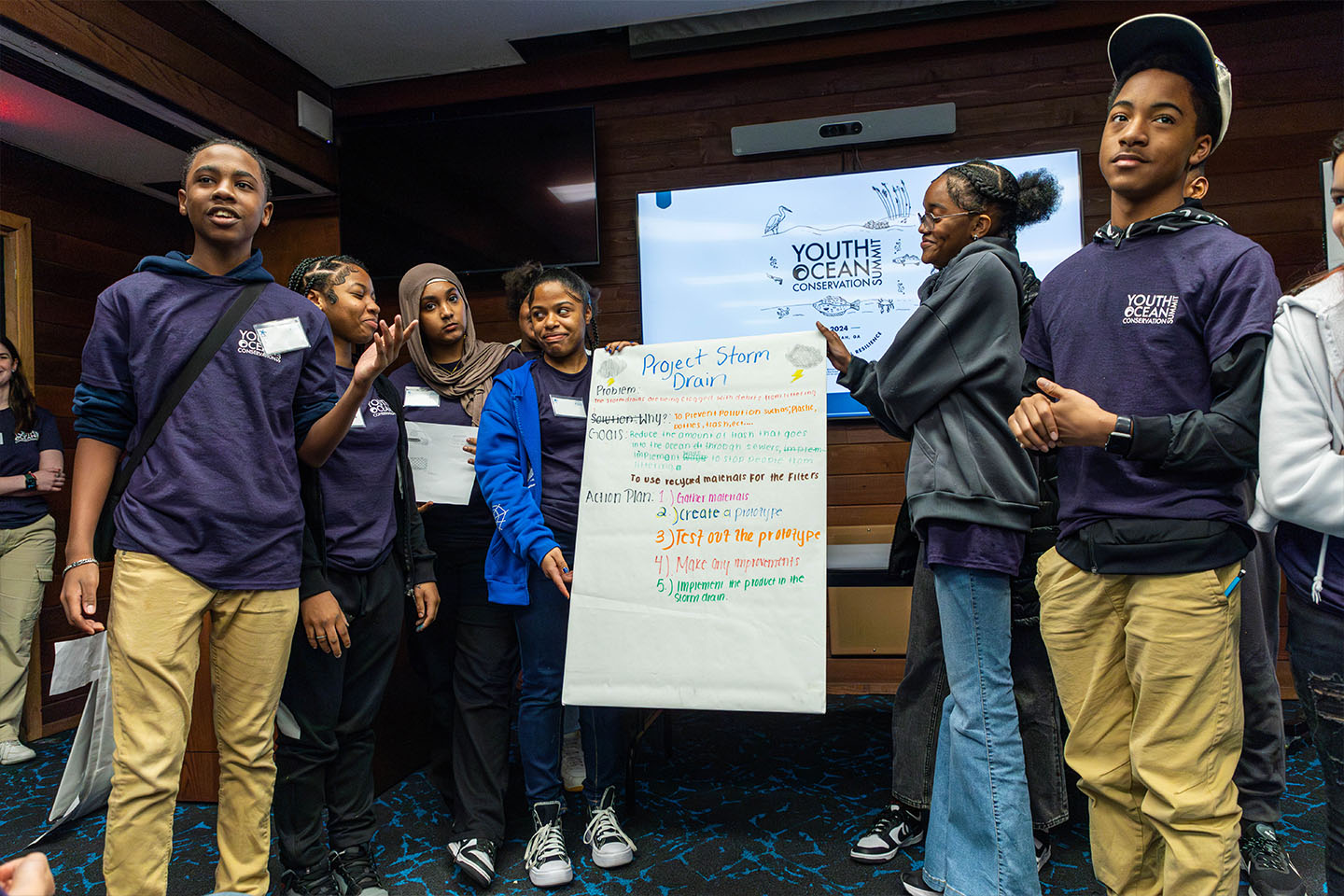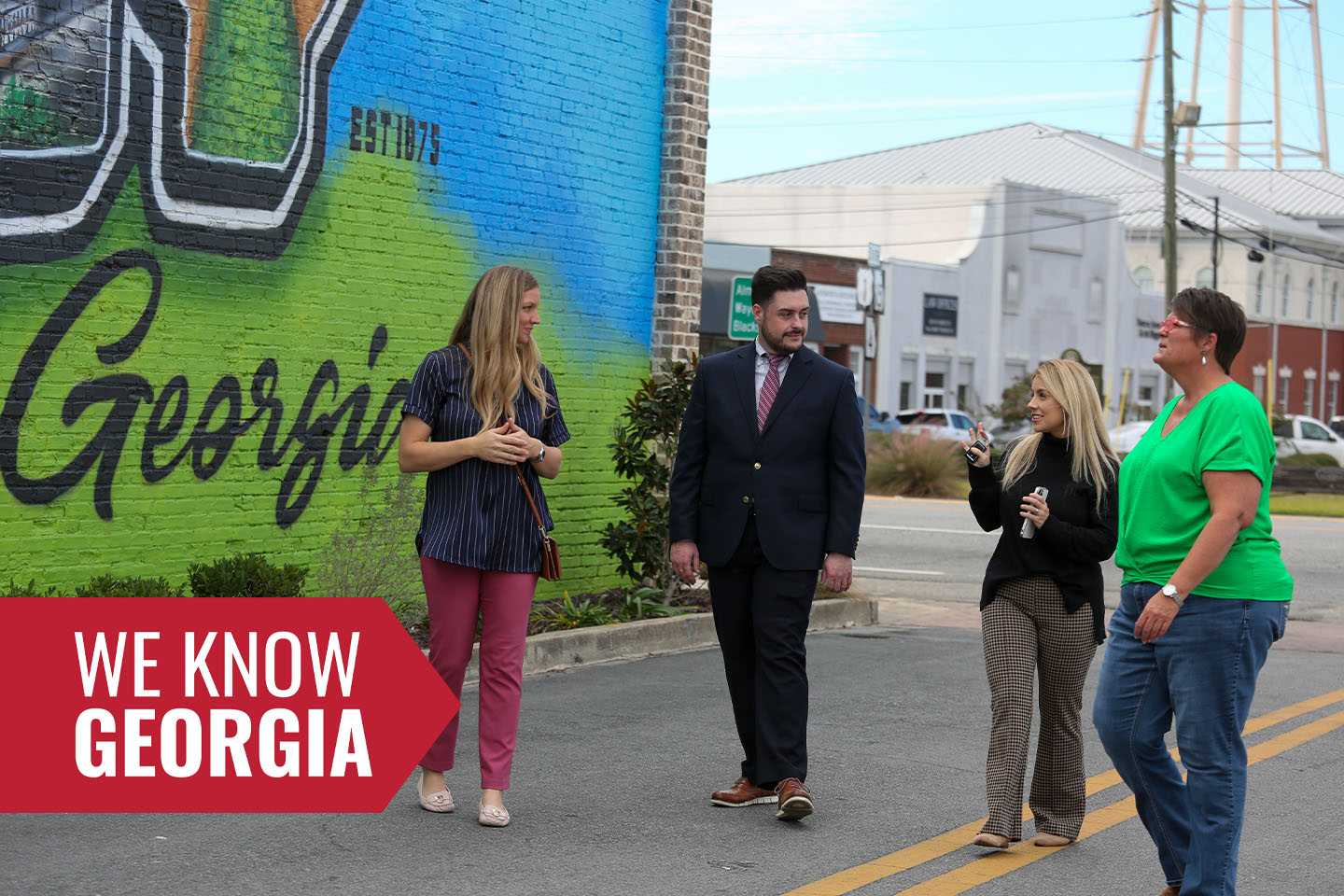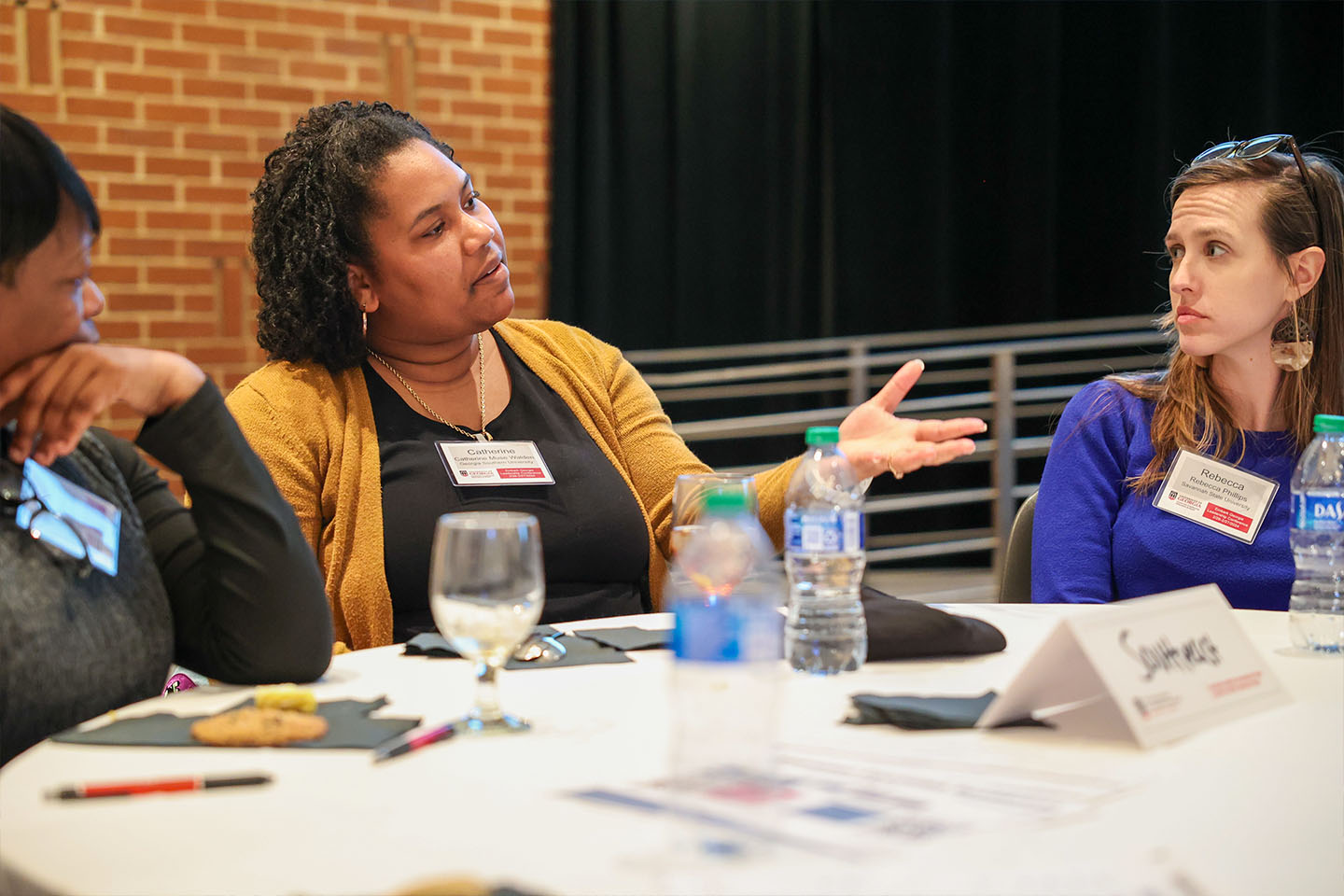Athens, Ga. – More than 800 middle-school and high-school finalists from throughout the state competed last weekend in the 65th Georgia Science and Engineering Fair (GSEF) at the Classic Center in downtown Athens.
Hosted by the Office of Academic Special Programs and The University of Georgia’s Center for Continuing Education, the GSEF is the state’s ultimate venue for displaying the science and engineering research of Georgia’s top middle- and high-school students.
An invitation to compete at the Fair culminates a string of achievements that begins for each competitor with a classroom or laboratory research project and experiment. Meritorious projects from school and local fairs are invited to exhibit at one of the 21 Regional Fairs held throughout the state in January and February. The best of the regional winners are considered for advancement to the state fair.
Students competed in 17 categories, including animal sciences, behavioral and social sciences, biochemistry, cellular and molecular biology, chemistry, computer science, earth and planetary science, electrical and mechanical engineering, engineering materials and bioengineering, energy and transportation, environmental management, mathematics, medicine, microbiology, plant sciences, physics and astronomy.
Fair Co-Director Laura Brewer said, “We were very impressed with both the caliber of research the students presented at the fair this year and the maturity and poise with which they conducted their interviews.”
Head judge Joe Hughes of The Georgia Institute of Technology coordinated over 300 science professionals from throughout the state in judging the projects on Friday, March 22.
Students competed for thousands of dollars in awards, internships, and prizes, including over 100 special awards that honor students for research in particular fields.
The top prize, the Georgia Science and Engineering Fair Pinnacle Award went to Anand Srinivasan of Roswell High School for SKYNET: Modeling Spatiotemporal Systems with Recurrent Neural Net.
Four students were selected to advance to the international competition, the Intel International Science and Engineering Fair (ISEF), which will be held May 12-17 in Phoenix, Arizona. They are Julia Abelsky of North Springs High School for Cylindrically Confined Diblock Copolymers and Gold Nanocomposites, Sonam Brahmbhatt of Rockdale Magnet School for Hypoxia Induced Effects On Chondrocyte Phenotype, Catherine Schlueter of Mountain View High School for Can Native Bees Replace Honeybees in Commercial Apple Production, and Pinnacle Award winner Anand Srinivasan of Roswell High School.
Also selected to attend ISEF are Larry Jacobs and Chelse-Amoy Steele of Rockdale Magnet School, for their project Discovering the Behavior of the Pancreas in an Obese Mouse Model. Jacobs and Steele are the recipients of the Merial Biological ISEF Trip Observer Award, which honors a 9th or 10th-grade student who displays the “desire, academic potential, and personality to attend ISEF as a participant in following years.”
The Grand Awards for Top Ten State Recognition went to Julia Abelsky, Sonam Brahmbhatt, Angelina Choi, Grade Devine, Alexandra Melehan, Chuanbo Pan, Sergio Parra, Catherine Schlueter, Anand Srinivasan and Justin Williams.
Two graduating high school seniors were selected to represent Georgia at the month-long 2013 National Youth Science Camp held in June in West Virginia. They are Julia Abelsky of North Springs High School and Natalie Rakoski of Villa Rica High School.
The UGA Charter Scholarship Award went to Malcolm Barnard of Johns Creek High School for Utilizing an Algal Filter to Improve Water Quality and Aqib Momin of Rockdale Magnet School for Computational Models of Stochastic Recurrent ANN’s.
The 67th Georgia Science and Engineering Fair will be held March 27-29, 2014.
For year-round information on the fair, visit http://www.georgiacenter.uga.edu/gsef or email gsef@georgiacenter.uga.edu.



